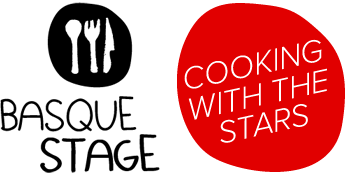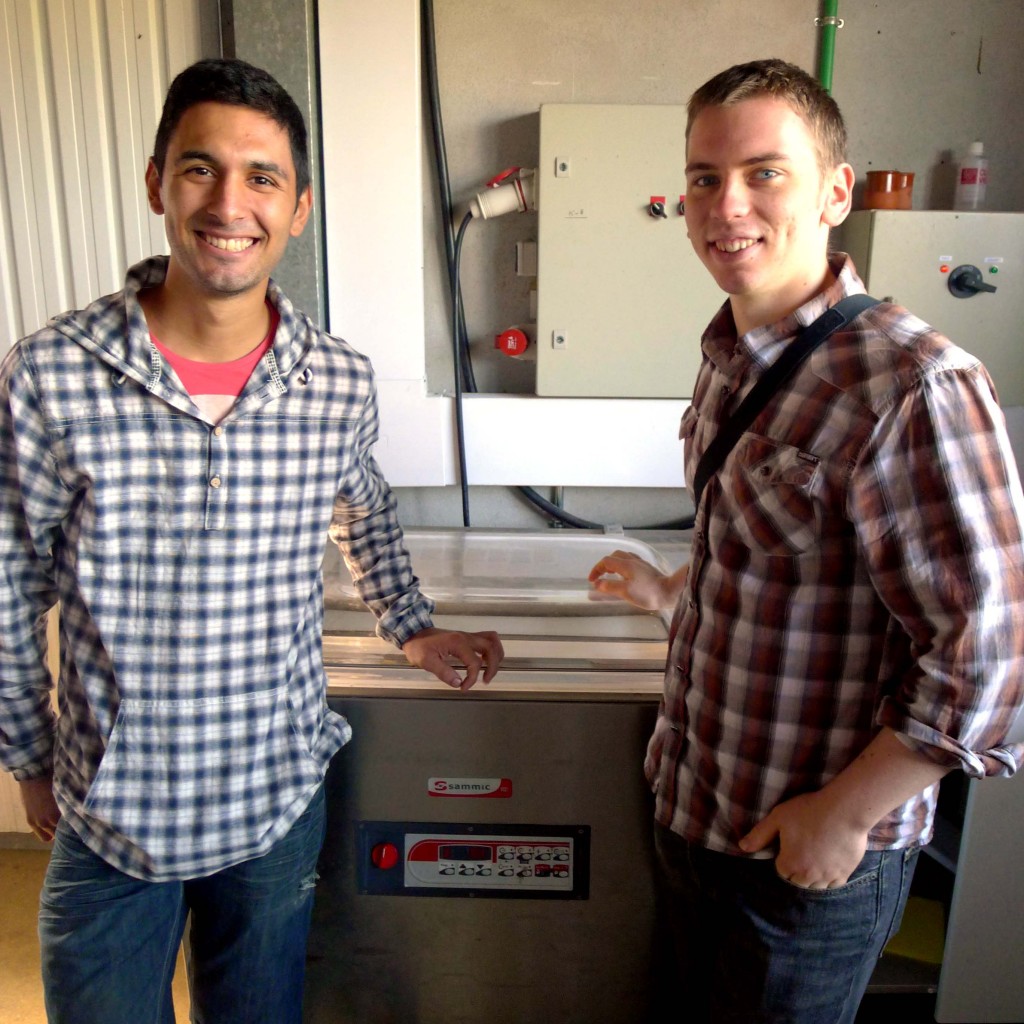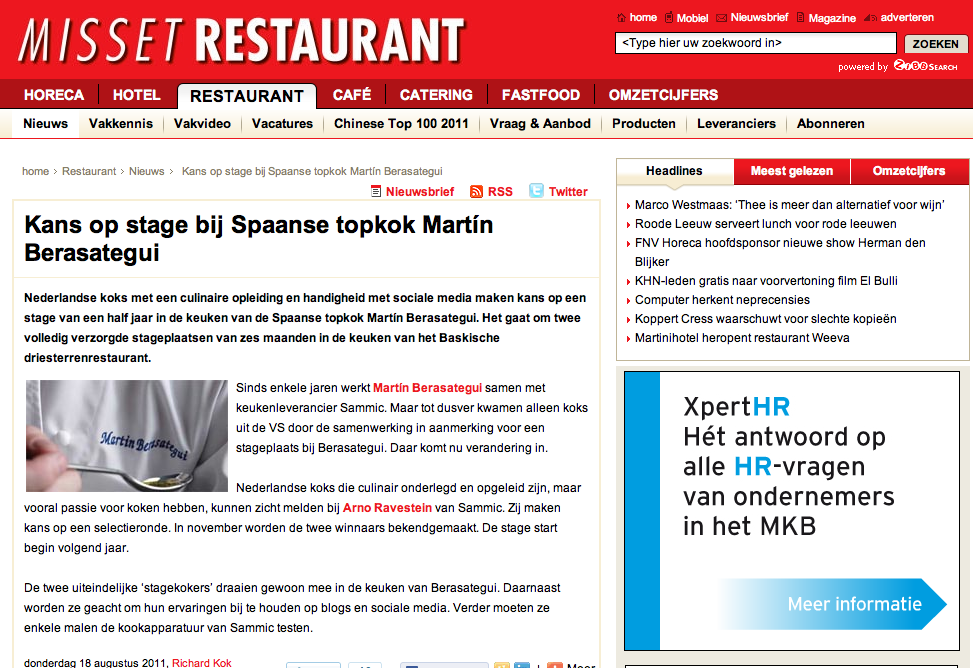There are seven days left to apply for the Sammic Scholarship for BasqueStage. In an effort to help those who are working through the application process, we held another livechat with current scholars, Marco and Cameron.
Here is a summary of the wealth of information they dispensed over the course of the hour, in case you missed it.
I am stressing over my demo video…any suggestions, should I keep it simple or go complex. it is only 3 minutes….
Marco: Keep it simple! A rule to live by for sure. Do what you know, and do it well.
What’s been your biggest, unexpected surprise?
Cameron: Probably how big the kitchen really is. It’s really big, and there are a lot of people. When we started there were around 15 per station, now it’s a lot less but still around 8. I’m used to whole kitchens with 4 people!
Besides the language barrier, what has been the hardest part of working in a Michelin 3-star Rated Kitchen?
Marco: Starting out the 16 hour day schedule was really tough. Though after the first week or so you get used to it and its really not a problem at all anymore.
Is language actually a barrier?
Marco: Terminology is the same with any new place, you learn it and you have it. My Spanish is pretty terrible, but terminology is learned quickly. As far as language barrier, it’s different for everybody. If you speak Spanish, no problem, if you don’t it is a problem. They do speak very quickly, and with a lot of different accents, which can make it a little more difficult.
Hi! Does RMB have its own garden? Pls tell me about verdulería: where it comes from, who grows it, how it gets there. Thanks!
Cameron: No garden, but we get all of our greens in planters & is picked the same day.
Hey all! Just wanted to ask how the living situation is?
Marco: The apt is great! Nice kitchen,10 min walk to Berasategui, 2 min to train into San Sebastian, & 2 big balconys!
What do you do in your down time?
Marco: On our down time weve been going on field trips with BasqueStage as well as trying all the great food and night life in SS.
Prior to receiving your scholarship, what type of restaurant experience did you have?
Marco: Ive worked at the peninsula hotel, a country club, a small season driven restaurant called may street market.
Cameron: first as a server, then as an artisan baker, staged in a few restaurants, and cooked in my school’s restaurant.
Would you say that your previous experience was helpful?
Cameron: Yes,the more you come with the more you can get out of the experience.tho I’ve only had school, stages, and some baking exp.
Marco: The most important thing to have is a strong work ethic, willingness to learn, and persistance which all comes with experience.
If there’s a typical day, would you describe it, and your sense of accomplishment at the end of it?
Cameron: Most days are typical. prep and service lunch, same for dinner with a siesta in between and staff meals. It’s about 16 hrs in all.
What have been some of your favorite things you have eaten for the first time in Spain?
Marco: Heres a post on the lunch at etxebarri!
What is it like when you start working each station? Do they just throw you in on your own or do they guide you through it until you understand exactly what they want you to do?
Cameron: There are a lot of components to prep for each dish, and every station handles it differently. In pastry you are always assigned a new task with someone who as done it before. In meats it’s a bit less organised, but someone always shows you how to do something first. Consistency is really important here so they don’t throw you around too much.
Can you give examples of the types of dishes prepared on the menu? I assume there is a lot of seafood…
Marco: The seafood items we have on the menu are oysters, red mullet, sole, lobster, hake, and kokotxas which is like the hake jowl. the kokotxas being a very regional dish which is very popular and tasty out here!
Is the weather temperate?
Cameron says: I lived in Portland Or, it’s pretty similar to west coast weather. 70-80 F during the summer, it’s starting to cool down a little bit. But in the winter I think it’s around 50 F It rains a bit more than the west coast in the summer. Though not overly rainy at all.
I am also curious about the regional pastries. Is there a lot of opportunity to learn about preparing these pastries?
Marco: As a basque stage you get the opportunity to work any and all stations which include fish, meats, pastry and starters. All well run and have different things to learn from each. Being in the basque region the pastries are similar to what you would find in France. At the restaurant we have a lot of classical pastries with spanish influences to them.
What interests you more? The slow food movement? Or avant garde cooking? And which do you find more relevant at the restaurant?
Cameron says: I always have trouble with labels, as I find it never black or white. but I’m more interested in the slow food movement, but I think more modernist techniques can be used at the same time. A full avant garde experience like El Bulli is really interesting but not exactly what I want to do. MB’s menu is more slow food, as most of the sourcing is local. If comparing to El Bulli, or Arzak MB isn’t nearly as avant garde.
Now get your application in, before the deadline of October 16!

















